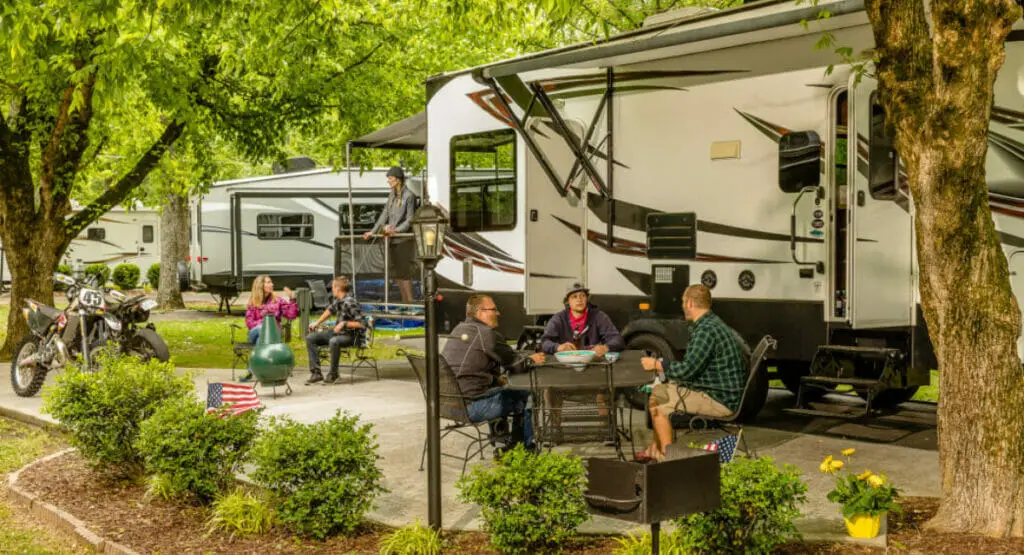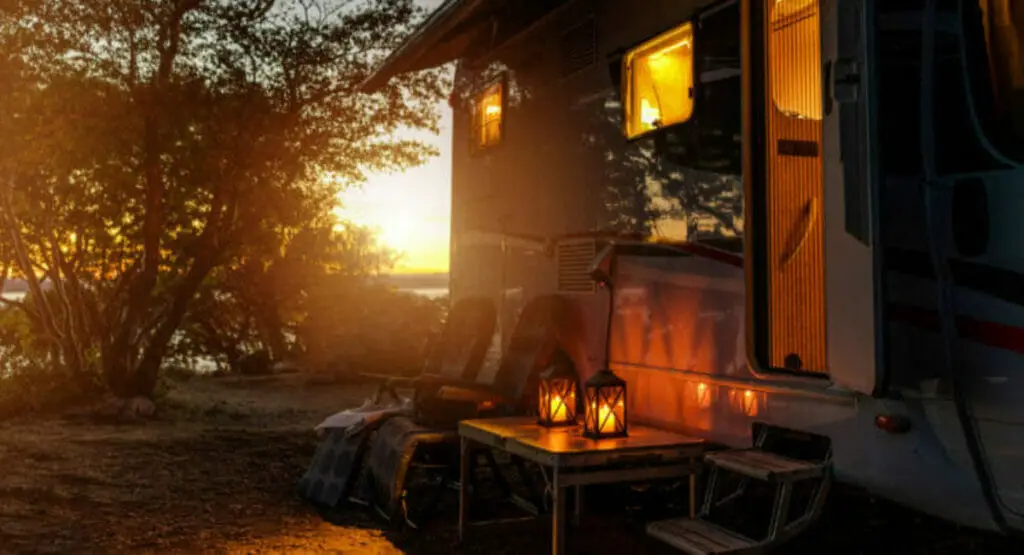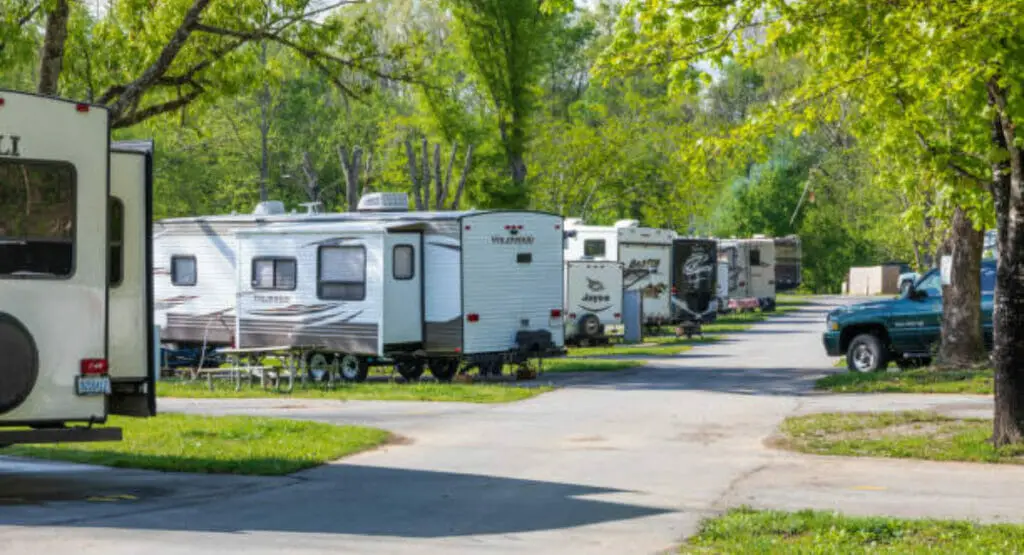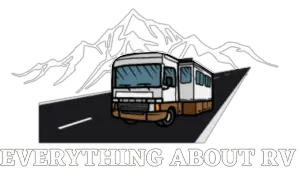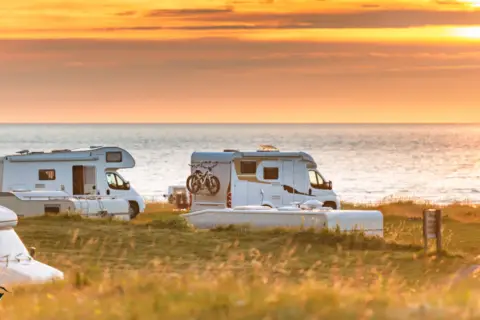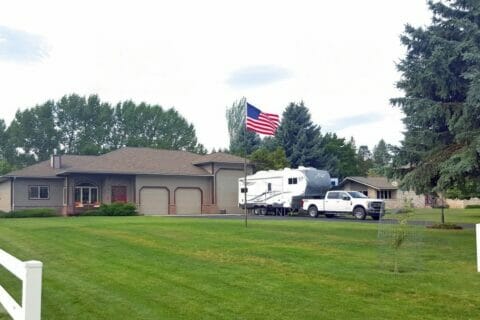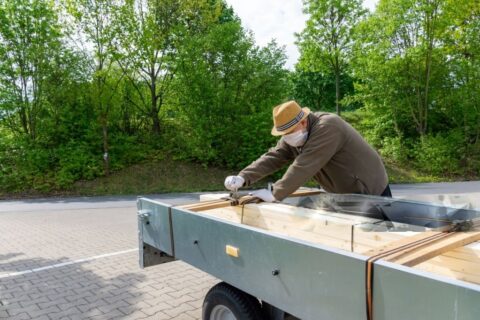Full time RV living can be a rewarding and enjoyable experience for some people, but it may not be the right choice for everyone. Some potential benefits of living in a camper full-time include the freedom to travel and explore new places, the opportunity to live a simpler, more minimalist lifestyle, and the potential cost savings compared to traditional housing.
However, there are also some challenges and downsides to consider before making the decision in living in an RV full time. These may include a lack of privacy and personal space, limited storage and amenities, and the need to find suitable places to park and set up the camper. Additionally, living in an RV full-time may not be practical or feasible for people with certain personal or professional obligations, such as children or a job that requires a fixed location.
Ultimately, whether living in RV full time is worth it will depend on an individual’s unique circumstances, needs, and preferences. It may be helpful to weigh the pros and cons and carefully consider all of the potential impacts before making a decision.
ADVANTAGES
1. Explore the world
One of the biggest advantages of living in an RV full time is the ability to travel and see new places. With a camper van, you have the freedom to hit the road and go wherever your heart desires. This means that you can explore new cities, visit national parks, and even take road trips across the country. Living in an RV (recreational vehicle) can be a great way to explore the world and visit new places. RVs come in various sizes and styles, including smaller campervans and larger motorhomes, and can be equipped with amenities such as kitchens, bathrooms, and sleeping quarters. One of the benefits of living in an RV is the freedom to travel and explore new destinations at your own pace. You can choose to stay in one place for a while or move on to the next location whenever you like. You can also visit a wide range of destinations, from bustling cities to remote wilderness areas, depending on your interests and preferences. However, it’s important to keep in mind that living in an RV full-time can also present some challenges and require some adjustments. These may include finding suitable places to park and set up your RV, managing limited space and resources, and navigating the logistics of everyday life on the road. It may also be necessary to plan ahead and make arrangements for things like fuel, maintenance, and provisions. Overall, living in an RV can be a rewarding and enjoyable way to experience the world, but it may not be the right choice for everyone. It’s important to carefully consider your needs and preferences before making the decision to live in an RV full-time.
2. Meeting people with a similar mindset
Another benefit of living in an rv full time is the sense of community that comes with it. Many people who live in camper vans are part of a tight-knit community of like-minded individuals who enjoy the same lifestyle. This can provide a great support network and make it easier to meet new friends and make connections on the road.
Full time RV living can be a great way to meet people with similar interests and lifestyles. There are many resources and communities available to help connect with other RVers and share experiences and advice. Some options for meeting people with a similar mindset while living in an RV full-time include:
- Joining RV-specific social media groups or forums: Many online communities exist specifically for people who live in RVs or travel in RVs. These groups can be a great place to ask questions, share tips, and connect with other RVers.
- Participating in RV rallies and events: Many RV-related events and rallies are held throughout the year, and these can be a great way to meet other people who live in RVs full-time. These events may include educational seminars, social activities, and group campsites.
- Visiting RV parks and campgrounds: Staying at RV parks and campgrounds can be a great way to meet other RVers and make new friends. Many of these locations have amenities such as pools, playgrounds, and recreational facilities, which can provide opportunities for socializing.
- Volunteering or working as a camp host: Some RVers choose to volunteer or work as camp hosts at different locations in exchange for free or discounted camping. This can be a great way to meet new people, learn about different areas, and contribute to the local community.
Ultimately, the key to meeting people with a similar mindset while living in an RV full-time is to be proactive and seek out opportunities to connect with others. By joining online communities, participating in events and activities, and interacting with people at RV parks and campgrounds, you can meet new friends and develop a sense of community on the road.
3. Affordable life
In addition to the freedom and community, living in an RV full-time can also be a more affordable way to live. Because camper vans are small and self-contained, they require less space and fewer resources than a traditional home. This can help save money on rent, utilities, and other expenses.
Living in an RV full-time can potentially offer an affordable lifestyle for some people, depending on a variety of factors. Here are a few ways that living in an RV full-time may offer an affordable life:
- Lower housing costs: One of the biggest expenses for many people is housing. By living in an RV full-time, you may save money on housing costs such as rent or mortgage payments, property taxes, and utility bills. Instead, you’ll only need to pay for fuel, campground fees, and maintenance expenses related to your RV.
- Reduced expenses: Living in an RV full-time can also help reduce other expenses, such as furniture, appliances, and home maintenance costs. RVs are typically smaller and more compact than traditional homes, making living easier with fewer possessions and reducing clutter.
- Increased flexibility: Another benefit of living in an RV full-time is the ability to be more flexible with your living arrangements. You can choose to stay in one place for a longer period of time to save money on campground fees or move around more frequently to explore new areas. This can give you more control over your living expenses and allow you to adjust your budget as needed.
It’s important to keep in mind that living in an RV full-time may not always be affordable for everyone. Factors such as the type and size of your RV, your travel patterns, and the costs of fuel, campground fees, and maintenance can all impact the overall affordability of this lifestyle. It may be helpful to carefully consider your budget and expenses before making the decision to live in an RV full-time.
DISADVANTAGES
1. RV Parking
However, living in a RV full time does come with some challenges. One of the potential disadvantages of full time RV living is the challenge of finding suitable places to park and set up your RV. Many cities and towns have restrictions on where camper vans can park, and it can be difficult to find legal and safe places to stay. This can be especially difficult in urban areas or in places where there are strict laws or regulations regarding RV parking. Some options for parking an RV full-time include:
- RV parks and campgrounds: These facilities are specifically designed for RVs and typically offer amenities such as hookups for electricity, water, and sewage, as well as access to facilities like bathrooms and showers. However, staying at an RV park or campground can be expensive, especially if you plan to stay for an extended period of time.
- Boondocking: Boondocking refers to camping in a self-sufficient manner, without access to hookups or facilities. This can be a more affordable option, but it requires a self-contained RV with a built-in bathroom and kitchen, as well as a good supply of water and power. Some people choose to boondock on public lands, such as national forests or Bureau of Land Management (BLM) land, while others may ask permission to boondock on private land.
- Parking on private property: Some people choose to park their RVs on private property, such as the property of a friend or family member. This can be a more affordable option, but it may also require permission from the property owner and could potentially strain the relationship.
Ultimately, finding a suitable place to park an RV full-time can be a challenge, and it may require some creativity and flexibility. It’s important to research the laws and regulations in different areas and to be respectful of the property and communities where you park your RV.
3. Limited storage in RV
Another challenge of living in a RV full time is the limited space and storage. Because camper vans are small, they can be cramped and may not have enough room for all of your belongings. You might need to downsize and get rid of extra items as a result, which can make it difficult to live comfortably.
4. Feeling of isolation while full time living in an RV
Feeling isolated can be a major disadvantage of full time RV living. Many RVers enjoy the sense of community that comes from living in an RV park or campground, but it can be difficult to find that same sense of community when you’re traveling alone or with just a few people. This can be particularly challenging if you are not comfortable being alone or if you have a large family. Additionally, living in an RV can be isolating due to its size and lack of space. This can be especially true if you’re living in a smaller model. It can be lonely to live permanently in a camper van, and it requires a significant lifestyle change. If you are used to living in a traditional home with more space and amenities, it can be difficult to adjust to the small, confined space of a camper van. With limited space, you may not have room to entertain friends or family, making it difficult to maintain relationships with people outside of the RV.
Conclusion
Whether living in a camper full time is worth it depends on your situation and preferences. If you are adventurous, enjoy traveling, and don’t mind a more minimalistic lifestyle, it can be a great way to live. However, if you value space and amenities, it may not be the best choice for you. It is essential to carefully consider the pros and cons before making the decision.

